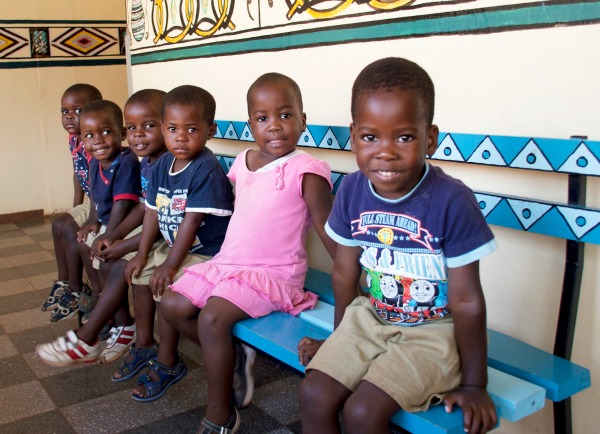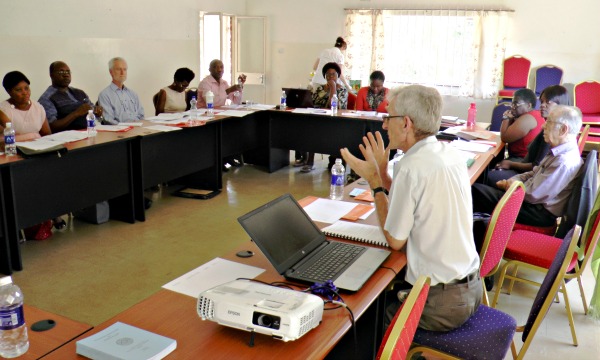
The Irish Jesuit Missions office has been generous in providing assistance, encouragement and resources to the Zambia-Malawi Province and other African Jesuit Provinces to get up to speed in Child Safeguarding and Protection.
Overcoming resistance to doing all we need to do brings several challenges. The first is a simple one: many directors of Jesuit ministries face multiple responsibilities and need to be convinced to make time to establish adequate child safeguarding policies and procedures in their projects. There are also those who think that child sexual abuse is a Western problem, while others fear that to emphasise the rights of children is to lead young people to lack respect for elders, something that is greatly valued in most African cultures.
Sadly, child sexual abuse is widespread in African societies, just as it is all over the world. Newspapers and other media carry constant and often graphic reports of cases of defilement. A prominent senior judge recently lamented the fact that a policy of harsh sentencing of offenders has not led to a decline in the number of child sexual abuse cases. In reality the problem appears to have become worse, though greater public awareness may play a part. Significantly, the judge was unable to suggest how the plague of sexual abuse might gradually be overcome.
How to bring about change? How to improve the situation? It is not enough to have an excellent Child Protection policy at the level of the Jesuit Province. Such a policy exists, together with a shorter, abridged version for distribution to those who work in various Jesuit ministries. These documents make clear our commitment to Child Protection (CP) and set forth guidelines and procedures to be observed by all. Crucially, these policies explain the nature of abuse and provide detailed information on how to respond to concerns or allegations and outline what action to take if actual abuse takes place.

Child Safeguarding and Protection workshop, Lusaka
But however good such documents may be, in practice it is easy to file them away untouched on a shelf. Hence the need to ensure that every Jesuit community/ministry prepares its own specific CP policy while also declaring its commitment to child safeguarding through visible, eye-catching posters and messages. CP training cannot be provided once for all, but needs to be renewed each year with special attention to new volunteers and employees.
Some ministries have a wide reach – parishes, for instance. In addition to the parish council there are liturgy, finance and catechetical groups. Each parish has numerous outstations with their own groups and councils, which may include ten or more lay organisations in every one. Most important of all are small Christian Communities (SCC); the heart of any parish. Lay organisations and SCCs also have their youth sections. Then there are vibrant children’s groups, including groups preparing to receive the sacraments. If Child Protection messages and training can be brought to the leaders and members of all these groups, attitude and behaviour change become possible in a relatively short time, and one parish learns from another.
There are of course other ways of spreading CP messages and effecting change. The Kasisi Agricultural Training Centre, widely known for advocating organic agriculture and delivering training programmes for farmers, has started to introduce CP material in all its training modules. It is hoped that the TV studios of Loyola Productions may soon produce Child Safeguarding materials for use not only in Zambia/Malawi, but in English-speaking Africa and beyond.
We are encouraged to dream that change is possible and that good triumphs over evil.
Author: Fr Peter Carroll SJ, 15th August 2017

